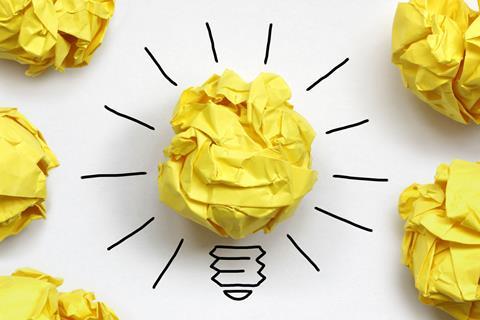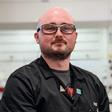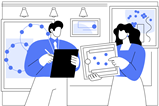Make your lab a space for students to confidently make errors and learn from them
Laboratory-based learning allows students to apply theoretical concepts to practical tasks, which often leads to them making mistakes. Mistakes are inevitable, perhaps even desirable. However, they can cause emotional responses in learners, which can impact student engagement and learning outcomes.

Engagement and learning are not equivalent. However, engagement impacts the learning strategies students use, the levels of self-regulation they demonstrate and their academic achievement. Situational engagement, which focuses on short-term engagement during specific tasks, provides a useful framework for understanding how mistakes influence learning.
Optimal learning moment (OLM) theory is a helpful concept to measure situational engagement. OLMs occur when students simultaneously experience high levels of interest, skill and challenge. Frequent OLMs can enhance long-term motivation and knowledge retention. Making mistakes can disrupt this engagement.
Engaging mistakes
Researchers in Finland conducted a study that explored how mistakes affect situational engagement during laboratory tasks and how they impacted student learning. Using situational engagement, the researchers focused on the short-term effects of mistakes on learning processes rather than just learning outcomes.
The study revealed that making mistakes led to different self-regulatory processes
155 undergraduate students took part during their first chemistry laboratory course. The researchers collected data over four lab sessions which involved distillation, liquid–liquid extraction, buffer solutions, pH and complexometric titrations.
To measure situational engagement during these sessions, students completed short surveys on their phones at defined points during the experiments. They self-reported their levels of interest, skill and challenge on a five-point Likert scale. The researchers tracked any errors students noticed they had made, either practical or calculation-based, and whether peers or a teacher helped in solving the error.
The researchers found that mistakes were common, happening in nearly 30% of all learning situations during the laboratory tasks. Student characteristics such as gender did not significantly affect the frequency of mistakes. The researchers found that students linking theoretical knowledge with practical laboratory work was a main driver of OLMs.
The researchers identified different types of mistakes and how they influenced engagement. Computational mistakes, such as errors in calculations, were associated with increased challenge but also decreased levels of perceived skill and interest. These mistakes required higher levels of cognitive processing, which disrupted the students’ engagement more acutely. Practical mistakes, such as errors in handling equipment, affected student engagement less. These mistakes were less cognitively demanding and did not significantly alter students’ interest or perceived skill level.
The study revealed that making mistakes led to different self-regulatory processes. Students had to decide how to respond to mistakes, either through adaptive strategies (such as seeking help or re-evaluating their approach) or maladaptive ones (such as disengagement or frustration). Their response was influenced by their individual attitude toward mistakes and how making mistakes was perceived in the laboratory environment.
Teaching tips
- Encourage students to explicitly connect theoretical concepts with practical tasks to improve engagement. For example, prompt students to apply chemical equations in real time or consider the scientific principles behind their experimental observations.
- Create an environment where people view mistakes as an inevitable and valuable part of the learning process by encouraging open discussion about them.
- Design tasks that allow learners to work through mistakes in a structured way, encouraging problem solving and critical thinking.
- Encourage students to work together to solve errors before seeking teacher assistance. Peer collaboration builds confidence and active engagement in problem solving.
- Offer feedback on how to reframe mistakes and model reflective practices to enhance student self-regulation.
Fraser Scott
Reference
R Kyynäräinen et al, International Journal of Science Education, 2024, doi.org/10.1080/09500693.2024.2439142
References
R Kyynäräinen et al, International Journal of Science Education, 2024, doi.org/10.1080/09500693.2024.2439142














No comments yet